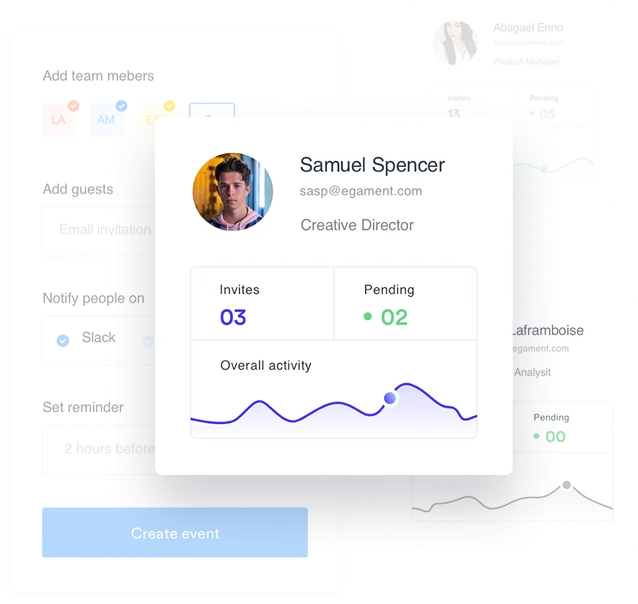The quality of education offered to a nation’s youth plays a pivotal role in shaping its future. Recognizing this, the National Education Policy (NEP) 2020 was introduced with a transformative vision-to build a holistic, multidisciplinary education system that nurtures individuals intellectually, emotionally, socially, physically, aesthetically, and morally.
At its core, the policy emphasizes the integration of technology across all levels of education, from schools to universities. It envisions a future where digital platforms enable seamless access to curricula, online courses, planning, teaching, learning, assessments, and student support systems-all contributing to an inclusive and modern educational landscape.
This ambitious digital shift is set to reshape how institutions operate, deliver education, and assess outcomes, offering unprecedented convenience and flexibility to both learners and educators.
However, this shift also brings an important question to the forefront:
What are the digital requirements of NEP 2020, and how can higher education institutions effectively meet them?
This blog explores how embracing a robust Student Information System (SIS) can empower institutions to align with NEP 2020 mandates and lead the way in delivering future-ready education.
Let’s dive in.
The NEP 2020 has introduced several mandates that will transform the way higher institutions manage their routine operations:
Continuous Assessment and Holistic Evaluation:
Moving beyond traditional examination systems, NEP 2020 emphasizes continuous assessment, competency-based learning, and 360-degree evaluation approaches. Institutions need robust systems to track multiple assessment parameters and generate comprehensive progress reports.
Digital Infrastructure and Technology Integration:
NEP 2020 places a strong focus on integrating technology to improve access, ensure quality, and promote transparency across the education system.
Institutions must demonstrate the effective use of digital platforms that offer numerous ways to simplify and enhance the execution of teaching, learning, and administrative processes within institutions and universities.
Multilingual Support:
This mandate asks institutions to generate and offer documents such as certificates, grade sheets, admission letters, analysis reports, etc., in multiple languages, making higher education more inclusive and accessible.
Data-Driven Decision Making:
AI and data analytics are central components of the NEP 2020 framework. Through this, the institutions are required to quickly audit their functioning and figure out the operational efficiencies, academic gaps, dropout risks, etc.
Cyber Security & Data Privacy:
Cybersecurity and data privacy are critical pillars of NEP 2020’s digital vision for higher education. Institutions must implement robust data protection measures to safeguard sensitive student information, academic records, and digital assessments.
This includes adopting secure systems, access controls, encryption protocols, and regular audits to prevent breaches and ensure compliance with national data protection guidelines.
Explore the top 5 security features institutions should look for while choosing an education ERP. Click on the link given below.
https://www.academiaerp.com/blog/top-5-security-features-every-education-erp-needs/
Digitizing & Automating Mundane Tasks
NEP 2020 encourages higher education institutions to embrace digital efficiency by minimizing manual, repetitive tasks. Education ERP/Student Information systems streamline routine administrative processes such as admissions, attendance, fee collection, timetable generation, exam scheduling, course management, and much more.
By automating these workflows, institutions not only reduce human error and paperwork but also free up staff time for strategic, student-focused activities, directly supporting NEP’s goal of smart governance and institutional effectiveness.
Traditional semester-end examinations are giving way to continuous, competency-based assessments under NEP 2020. This shift requires institutions to capture and analyze multiple data points throughout the academic year.
Education ERP systems excel in this area by providing integrated assessment modules. Teachers can record daily observations, project evaluations, and peer assessments directly into the system. The platform aggregates the entire data to generate interactive & comprehensive progress reports that align with NEP 2020’s holistic evaluation framework.
You’ll find this valuable-discover how Academia delivers real-time reporting with precision
The policy’s emphasis on evidence-based improvements requires institutions to collect, analyze, and act on comprehensive data. ERP solutions designed for education offer robust analytics dashboards to monitor student outcomes, operational performance, and resource management.
For example, if data reveals that students from certain backgrounds struggle with specific competencies, administrators can quickly identify intervention opportunities and deploy targeted support programs. Such a data-centric strategy closely supports NEP 2020’s goal of fostering inclusive and flexible learning environments.
As India moves toward becoming a global education hub, institutions that embrace NEP 2020 digital transformation will have a significant competitive advantage. ERP systems don’t just ensure compliance-they enable innovation, efficiency, and educational excellence.
By centralizing academic and administrative processes, Education ERP systems empower institutions to make data-driven decisions, personalize learning experiences, and streamline day-to-day operations.
From automated admissions and real-time student performance tracking to multilingual support and seamless interdepartmental integration, these platforms lay the foundation for scalable, student-centric growth. In a landscape shaped by rapid technological change, ERP adoption isn’t just an upgrade-it’s a strategic imperative for future-ready institutions.
From enabling flexible academic pathways to supporting continuous assessment and multilingual education, ERP systems transform regulatory requirements into opportunities for educational excellence. Institutions that invest in comprehensive, policy-aligned ERP solutions position themselves not just for compliance but for leadership in India’s educational future.
The time for gradual change has passed. Educational institutions must act decisively to implement systems that support NEP 2020’s transformative vision while delivering tangible benefits to students, faculty, and administrators.
Ready to transform your institution’s NEP 2020 compliance journey? Book a demo today and discover how our education ERP solution can turn challenges into competitive advantages.
Talk to our experts and see the difference comprehensive digital transformation can make.
To read more about the National Education Policy (NEP) 2020, visit here:
https://www.education.gov.in/sites/upload_files/mhrd/files/NEP_Final_English_0.pdf

Experience Academia – Your partner in transforming campus operations, a trusted all-in-one ERP/SIS solution.
Get the latest insights, trends, and updates delivered straight to your inbox!
